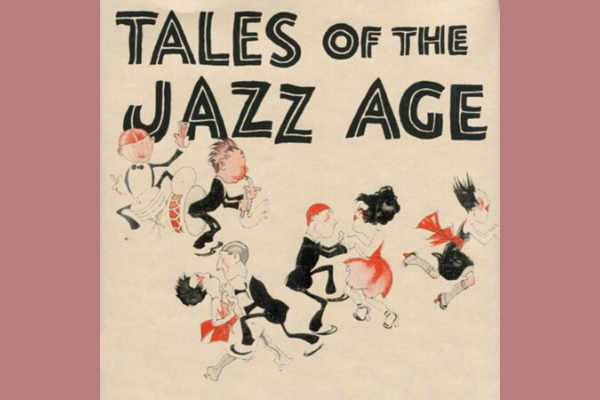Flappers Favorites - Music of the Roaring Twenties
The Weston Historical Society brings you the following musical interludes. From Farmers to Flappers, tapping their feet or fox trotting, these were the tunes everyone was listening to at the beginning of the Jazz Age. Please take a moment to revel in some melodies from the 1920's.
Flapper’s Favorites “convey the essence of the Roaring Twenties.” The sound was brash, fresh and unpredictable. It could be heard in homes, nightclubs and roadhouses, and can be credited with creating a cultural shift in prevailing tastes of the day. Whether compositions came from the sole surviving son of formerly enslaved parents, James Hubert “Eubie” Blake, or high school drop-out and second son of Russian immigrants, George Gershwin, inspiration was found all around and the tunes remained infectious and delightful.

Flapper's Favorites: Music of the Roaring Twenties
July 18, 2020
Listen to Flapper's Favorites
Flapper's Favorites Play List
Train (2:37) Unknown
Kansas City Kitty (2:44) The Cotton Pickers
Me and the Man in the Moon (3:16) The Ambassadors
2 to 2 (2:57) Unknown
The Chevy Chase (2:37) Eubie Blake
Animal Crackers (2:47) California Ramblers
Henpecked (2:44) Charlie Straight's Orchestra
Tishomingo Blues (2:58) The Washingtonians
Bugle Call Blues (2:18) New Orleans Rhythm Kings
There'll Be Some Changes Made (2:51) The Chicago Rhythm Kings
Wang Wang (3:24) Paul Whiteman and Orchestra
Rhapsody in Blue (9:25) Original 1924 Acoustic Recording* of Paul Whiteman and Orchestra, George Gershwin on piano
* Acoustic Recording, made without microphone and electrical amplification
Historical Musical Tidbit: Chevy Chase Resort Bars Freak Dances - The Washington Times June 12, 1912 p.7. " 'Freak dancing' is barred at Chevy Chase Lake. Those in charge of the amusement resort have announced that out of consideration for the public ‘none of the latest, the bunny wiggle, or the grizzly hug,’ will be permitted upon the pavilion at the lake. All dance lovers must confine themselves to the old straight away waltz and two-step. Even in these no fancy steps will be permitted.” It is believed this controversy inspired Eubie Blake to name his 1914 composition “The Chevy Chase Fox-Trot.” - from the Chevy Chase Historical Society
Historical Musical Tidbit: Blake A. Bell, Historian of Pelham, NY wrote about the band, the California Ramblers and how they took their name from the Rambler Inn located in Pelham, New York. The Morris family once owned an estate with a lovely home that stood slightly north of today's Bartow-Pell Mansion Museum along Shore Road opposite today's Pelham Bay Golf Course (part of today's Pelham Bay and Split Rock Golf Courses). During the 1880s, the forerunner to today's New York City Department of Parks & Recreation arranged the acquisition of the property including the home on behalf of the City. At some point, a man named Shanley leased the property, renovated and changed the home, then turned it into a roadhouse called the "Pell Tree Inn".
By the 1920s, the business had changed hands and was known as "Ramblers Inn". In those years, of course, jazz bands played in many of the local roadhouses. Among those who played at Ramblers Inn were members of a group that included Red Nichols, Jimmy Dorsey and Tommy Dorsey. Tradition has it that the group became so successful so quickly, that they named themselves the "California Ramblers". They supposedly took the name of the Inn where they became famous and changed the name slightly to add the panache of a name that included a reference to the sun-drenched state on the West Coast. One thing is certain, however. During the 1920s, the group became one of the most successful of their day. The group recorded hundreds of successful jazz tunes on many record labels including Columbia Records throughout the 1920s. One of the oddest "facts" about the band is that it recorded under a very, very large number of "pseudonyms" during the 1920s.
By the early 1930s, the business had changed hands once again and was known as the Hollywood Gardens. Paul Whiteman and his orchestra played to large crowds at the Hollywood Gardens until Robert Moses ordered the structure razed in the mid-1930s while work was being done to destroy the bungalows at old Orchard Beach. - Blake A. Bell, Historian Pelham, NY
